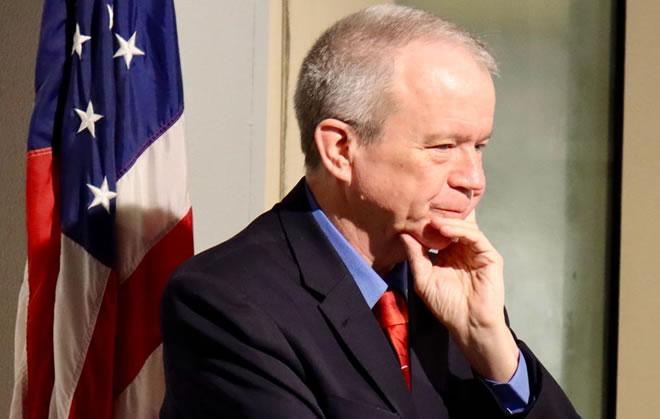The Partnership between the United States and Somalia: Shared Interests, Shared Goals
by Ambassador Larry André, Jr.
Monday January 16, 2023

After one year serving as the United States Ambassador to Somalia, I recently concluded individual introductory meetings with all Federal Government of Somalia ministers. I have also met all Federal Member State presidents, Somaliland’s president and cabinet ministers, and members and leaders of the federal parliament. I shared with these senior leaders the United States government’s top goals in Somalia, which align closely with the goals of the Government of Somalia at the federal and state levels. Our two nations have shared interests, which lead to shared goals. As I learned about each federal ministry’s and state government’s ambitious plans, my confidence in Somalia’s brighter future increased.
The purpose of Somalia’s embassy in Washington is to advance Somalia’s interests. The purpose of the United States embassy in Mogadishu is to advance United States’ interests. The work of both embassies is aided by the fact that our countries’ interests mostly coincide. The United States and Somalia coordinate joint efforts to achieve our shared goals.
So how do we conduct diplomacy?
As the United States Ambassador, I am the personal representative of United States President Joseph Biden to Somalia President Hasan Sheikh Mohamud. This is the president-to-president level. When I meet with Somalia citizens and hear their views, their concerns, and their hopes, I pass on what I learn through reporting that goes to President Biden’s government, including the White House. Those perspectives help inform our policy and programs.
Our embassy team members represent various parts of the United States government. They work with their counterparts in various Somali ministries at the federal and state levels. This is the government-to-government level.
Finally, we communicate with Somalia’s people, such as through this message. In conversations with media, educators, and civil society – including those on society’s margins – we deepen our understanding of Somalia and share our American story. Our exchanges and online programs support entrepreneurs, English language students, community leaders, and journalists to further develop their skills. This is the people-to-people level of diplomacy.
I am asked about our work with the Federal Member States and Somaliland. My team and I maintain contact with each of the Federal Member States and with Somaliland. Before we undertake programs anywhere in Somalia, whether related to security, humanitarian affairs, economic development, or government services, we first coordinate with the Federal Government of Somalia.
In my office, I keep copies of two documents: the 2012 Provisional Constitution of the Federal Republic of Somalia and the 1961 Vienna Convention on Diplomatic Relations.
I consult these documents to ensure our work to advance shared goals is appropriate. Once Somalia’s leaders and institutions agree on a final constitution, then we will review that future document for the same purpose.
So, what are our goals in Somalia?
Increase Security for the United States and Somalia: Enhance security coordination among Somali forces and international partners; Assist Somali security forces to protect Somalis from terrorist attacks, insurgency, and violent crime.
Respond to Somalis’ Humanitarian Needs and Support Inclusive, Resilient Growth: Provide life-saving aid while building resilience; Support reforms that enable full debt relief, spur private sector-led growth, and reduce financial crimes.
Work with Somalia’s Federal and State Governments to Promote Peace through Effective Governance: Strengthen governance and public services for threatened and recently freed communities; Expand access to health and education services; Promote stable, effective, democratic governance via reconciliation and finalization of Somalia’s constitution.
I have traveled to Baidoa, Garowe, Hargeisa, Kismayo, as well as Nairobi and Minneapolis to discuss these goals. I have heard the views of Somalia citizens who have lived much of their lives in other countries, and the views of those who never left Somalia. I have listened to older Somalis who describe their country prior to state collapse in 1991 and younger Somalis born years after that event. I have heard Somalis express diverse political views; a range of reflections on clan, regional, and national identity; and passionate, ambitious aspirations for their country and themselves. What do all these diverse voices have in common? They want Somalia to move forward, and they want the United States to help.
My colleagues and I admire the progress achieved in recent months by Somalia’s people and their leaders at the federal and state levels in advancing our shared goals. We pledge to continue our support and play our role in the United States-Somalia partnership. This is a time of great hope for Somalia’s full revival. I respect the dynamism, energy, and determination so characteristic of Somali culture. I am grateful to all my Somali friends who have taught me so much.
U.S. Ambassador Larry André, Jr.
Larry André, Jr. is the Ambassador of the United States of America to the Federal Republic of Somalia